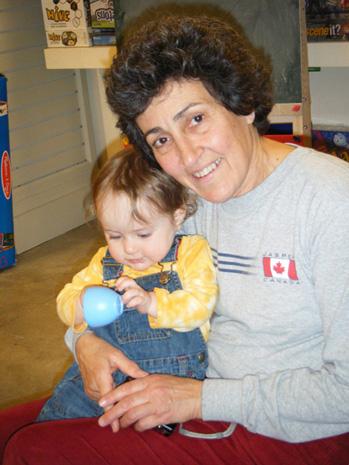Dr Donna Keystone retired on June 25 after 33 years of compassionate commitment as one of Toronto’s first and foremost primary care physicians for people living with HIV/AIDS.
In 1976, Keystone opened a practice at Parliament and Wellesley streets in Toronto. As young gay men began coming down with atypical diseases, doctors started referring them to her because she holds a diploma in tropical medicine.
Gay friends soon began dying as AIDS tore through the community.
“People thought I was taking Thursdays off, but I was out making house calls,” says Keystone. “I had to; my patients were too sick to come to me. I carried death certificates in my purse.”
Funeral directors who refused to accept the bodies of those who had died from AIDS and hospital staff who refused to care for AIDS patients found themselves dealing with the righteous wrath of this Jewish doctor and mom.
Dr Phillip Berger, one of Keystone’s colleagues, chuckles as he recounts her tenacity.
“She was relentless in her fight for so many dying people,” he says. “You didn’t want to be on the wrong end of that.”
As gay communities mobilized against the new disease, Keystone, with some of her children in tow, participated in one of the first protest marches to demand access to the then-experimental drug AZT.
“I had to,” she says. “With AIDS came homophobia, and as a straight woman I felt obligated to do what had to be done.”
Among Keystone’s five children are Jen Keystone, an out, proud lesbian mom who today works at the Sherbourne Health Centre; and Kevin Keystone, an out gay man. Dr Keystone chose to mark her retirement at Kevin’s champagne birthday celebration.
“I admired the teams and friends that mobilized in the Buddy Program to care for the sick and dying, but where were the mothers?” she says. “I would go to the funerals to tell the moms how terrific it was that they were there. When they weren’t there, it was my role to bring the atmosphere of family.”
As a member of the progressive Holy Blossom Temple, Keystone helped initiate the “Third Seder” in the community, a ritual Passover feast for the dozens of gay men and others who were ostracized from their families due to homophobia and AIDS.
“The Third Seder was a remarkable success for a number of years at the 519 Community Centre, until some [gay] community politicos accused us of being straight Jewish women who did not want these people in our own home temple. So, we moved the Seder to our synagogue,” she says with a compassionate smile.
“That’s what she does; she makes family,” proclaims her daughter Jen.
A proclamation of appreciation from Toronto City Council on her retirement thanks Keystone for her “outstanding dedication and commitment to the care of AIDS patients, their family and friends…[and her] compassion and respect for those who were struggling with a disease still unknown.”
Thank you, Dr Keystone, for being our doctor, our friend and for making family.

 Why you can trust Xtra
Why you can trust Xtra


